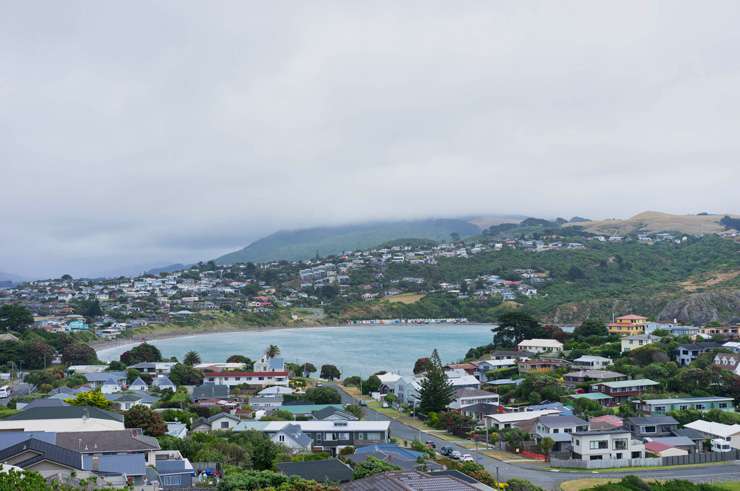Christchurch is being hailed as the one city in New Zealand that’s “got it right”, with some of the cheapest house prices and rents compared to all the other major cities and even some North Island provinces.
The country’s third largest city had a median weekly rent of $480 as of May this year, up 20% from $400 two years ago, which was the price it had been since 2014, according to the latest Ministry of Business, Innovation and Employment rental data.
Canterbury also recorded a median house price in June of $690,000 and $700,000 in Christchurch, showing that prices are still much cheaper than other large New Zealand cities, despite being one of the few regions still recording month-on-month growth.
As of May, Porirua had the highest median weekly rent at $650, up 30% from $500 the same period two years ago, followed by Tauranga’s $623 – up 19% from $520, Auckland’s $595 – up 8% from $550 and Wellington’s $580 – up 7% from $540.
Start your property search
Kaikoura and Opotiki had the cheapest rent in the country at $300 a week followed by Waimate at $330 and both Gore and Wairoa at $350.
Gisborne’s median rent has had one of the biggest jumps rising 36% to $520 in two years and 92% since May 2014.
As the shortage of rentals continues to push rents up, especially in provincial areas such as Gisborne up to nearly Auckland prices, Property Brokers general manager of property management David Faulkner claimed Christchurch was the one city in New Zealand that had “got it right” because it had built enough housing stock after the city was rocked by the earthquake in February 2011.
Faulkner said Christchurch’s rents had hovered around the $395 / $400 mark since the rebuilding of the city and even in May 2014 the median rent was $400 per week.

Houses in Porirua. Rents in the city have jumped $150 in the last two years. Photo / Getty Images
He believed the recent increases in the garden city was largely due to the new interest deductibility and healthy homes compliance rules.
“The reason why it’s working is they’ve built a city now where there’s enough property to meet the demand and it’s led to stable rents and stable house prices. The infrastructure is excellent. In regards to lifestyle and affordability, Christchurch just about has it all, other than a stadium, but once that’s built...,” Faulkner said.
“A lot of cities could learn looking at the blueprint of Christchurch. Christchurch is flat, it’s open, it’s easy to commute.”
Christchurch’s relatively low and stable prices also meant there had been less movement from Christchurch to surrounding provinces, such as Ashburton where the median rent was $400, and these increases were in line with traditional rent rises, he said.
“You haven’t had that ripple effect into the South Island towns whereas the North Island has been hugely impacted and people have moved out of the city because of Covid, better lifestyle or whatever it maybe. Auckland rents have hardly changed because of Covid whereas the provinces have absolutely sky rocketed.
“Gisborne is now more expensive than Christchurch – you wouldn’t have thought that would happen.”

Mortgage adviser Gareth Veale: “A lot of people are moving to Canterbury because it is cheaper.” Photo / Supplied
Mortgage adviser Gareth Veale, of EasyStreet Mortgages, said after the Christchurch earthquake a large tract of land was opened up for housing development beyond what was needed to replace the houses that were destroyed and that had helped keep prices stable.
“A lot of houses were built and when you fix the supply issue then housing affordability is better in Christchurch because there are no supply issues.
“Canterbury can thank a lot of the work to the former earthquake minister Gerry Brownlee in spearheading a lot of the opening up of land in Canterbury for housing development.”
However, prices are going up and a 500sqm section in Rolleston that would have cost about $250,000 at the start of 2021 is now worth $400,000.
“There’s been quite a jump up in the price of land because people are wanting to build houses. A lot of people are returning to Canterbury or moving to Canterbury because it is still cheaper so there’s a lot more demand. I think the price increases have gone up relative to here, but relative to the rest of the country it’s still hugely affordable,” Veale said.
“For what you are getting in terms of a vibrant city with atmosphere and attractions and good working prospects – definitely the values there. You are always going to earn more and have more opportunities in Auckland, but the cost of living in Auckland and the cost of getting ahead if you want to own property is just too hard for most people or they have to make massive sacrifices in what they can get.”
Bayleys Christchurch Property Management operation manager Matthew Curtis agreed rents had been relatively stable in Christchurch, but there were currently fewer rental properties to choose from than there had been in the last seven to eight years.

CoreLogic chief economist Kelvin Davidson says Christchurch has a better balance of supply and demand. Photo / Peter Meecham
Between 15 and 18 months ago there were about 1200 to 1400 properties for rent at any one time, but those listings have dipped and are currently sitting at around 700 to 800.
Curtis put the reduction in listings down to some landlords with older properties selling rather than investing, as well as more people moving to the area.
“I think compared to the likes of Wellington and Auckland particularly, rents are far more affordable. I guess the beauty of Christchurch is we do have a lot of reasonably new stock after properties were demolished in the earthquakes 11 years ago, we’ve seen a lot of properties updated and replaced with new stock as well so I think the quality you get for your money is probably quite good too.”
CoreLogic chief economist Kelvin Davidson said there wasn’t a “flood” of people moving to the city, but Christchurch appeared to have a better balance of supply and demand due to more favourable planning rules and a more proactive attitude to development which was keeping it affordable.
“Whether it’s owner-occupier or rented, the key point is both sides of the equation are looking in better control in Christchurch so you have to think there’s some kind of reasonable balance there. You’d be hard pressed to say there’s an under supply because especially around greater Christchurch there’s still a lot of development going on.”













































































